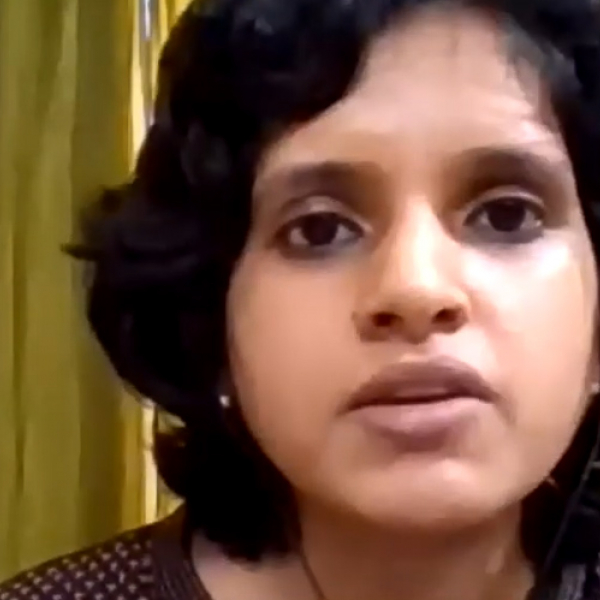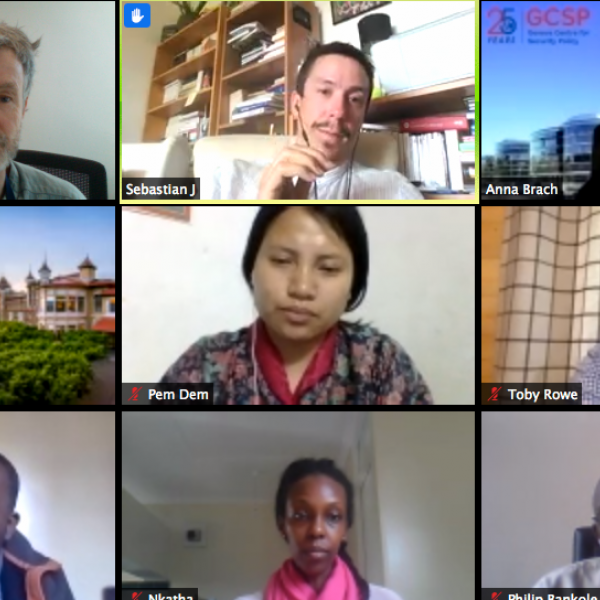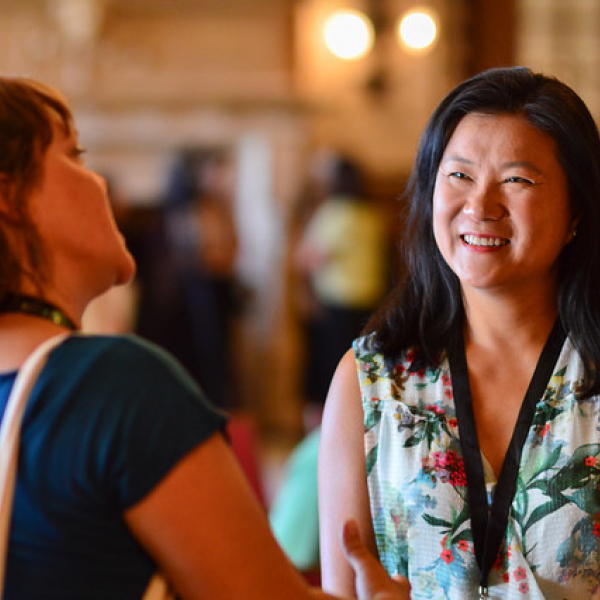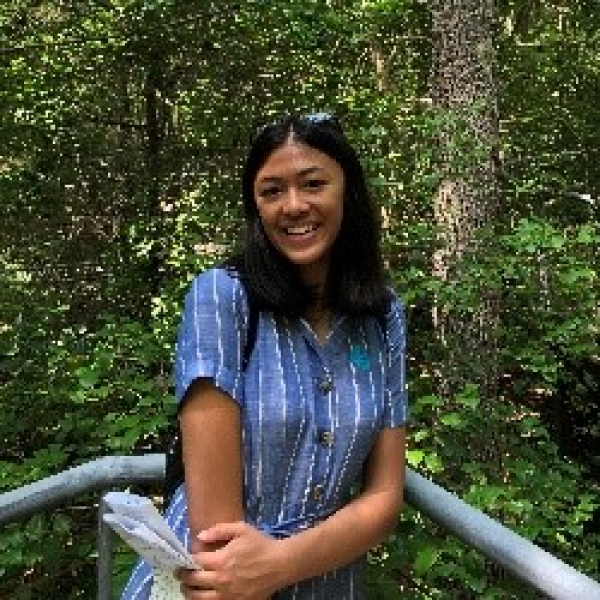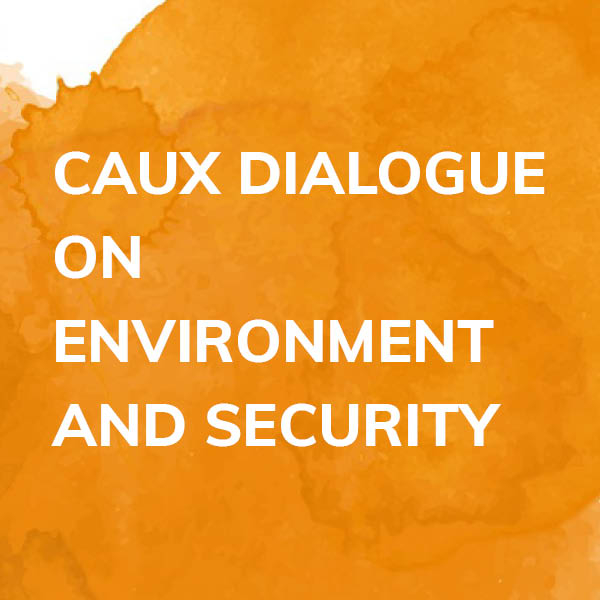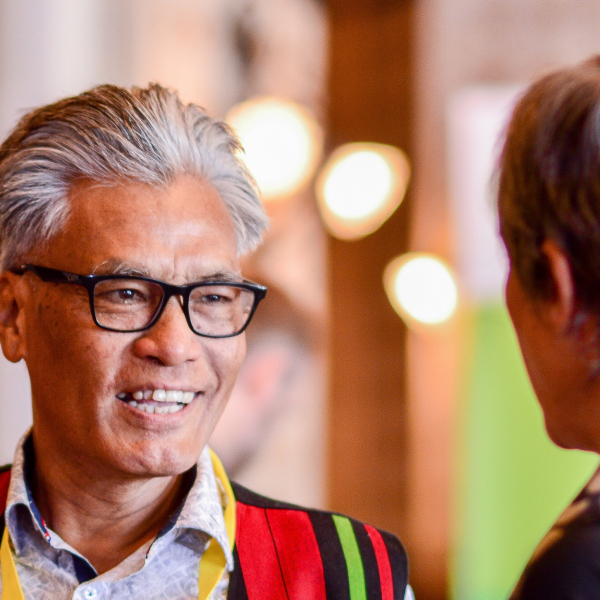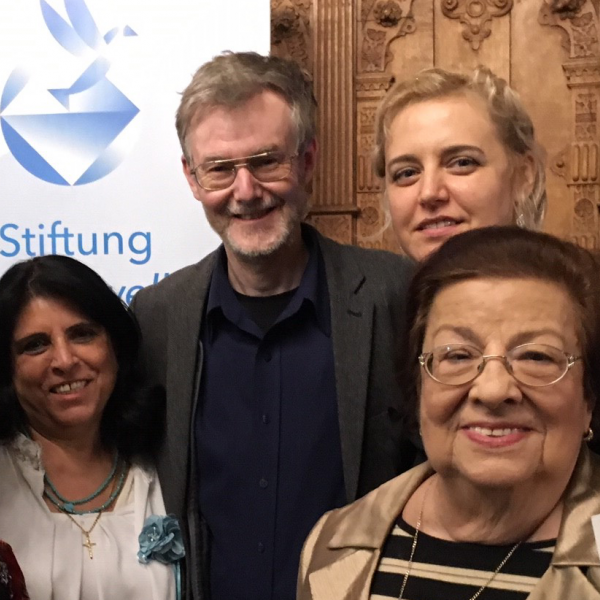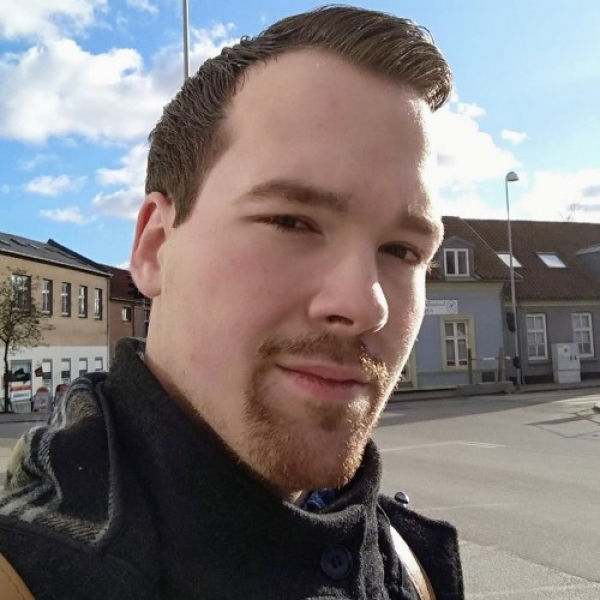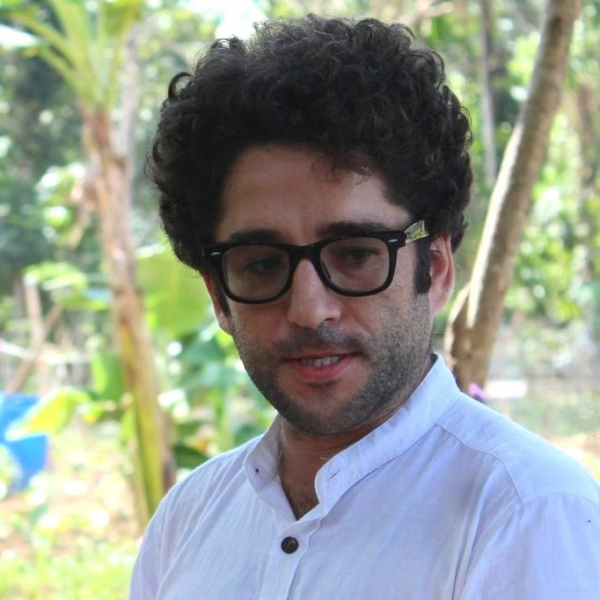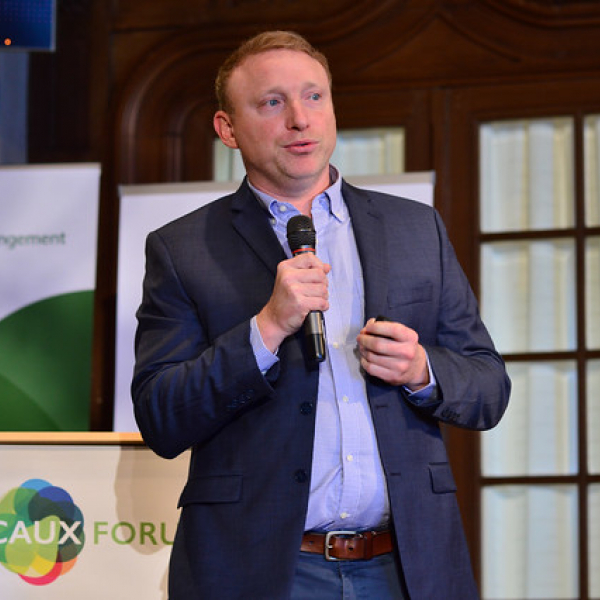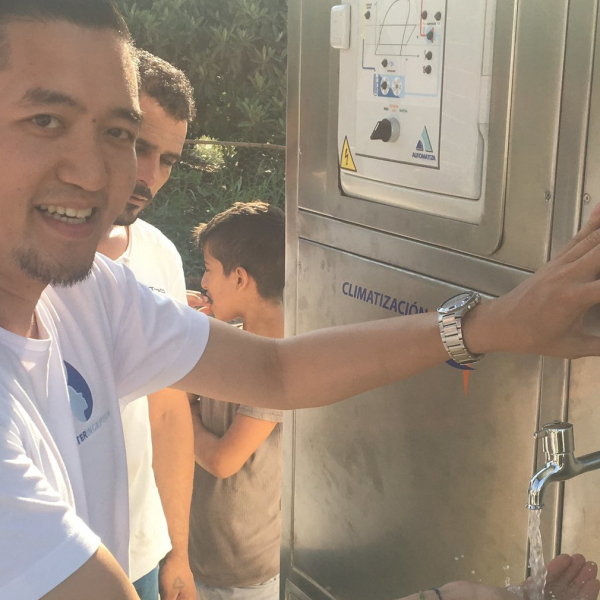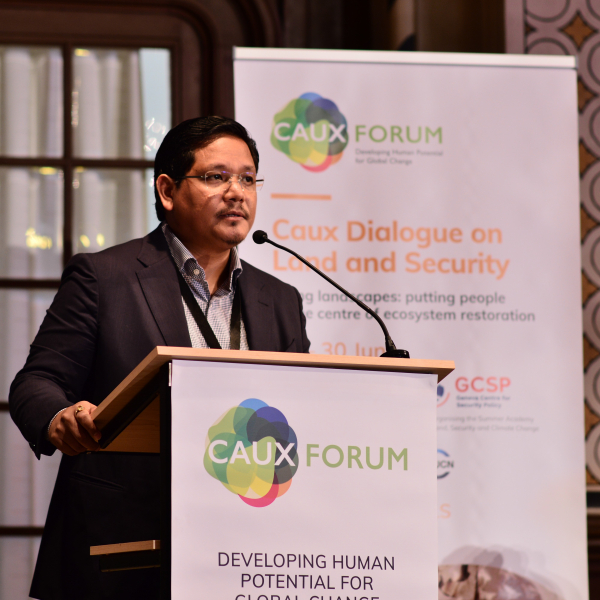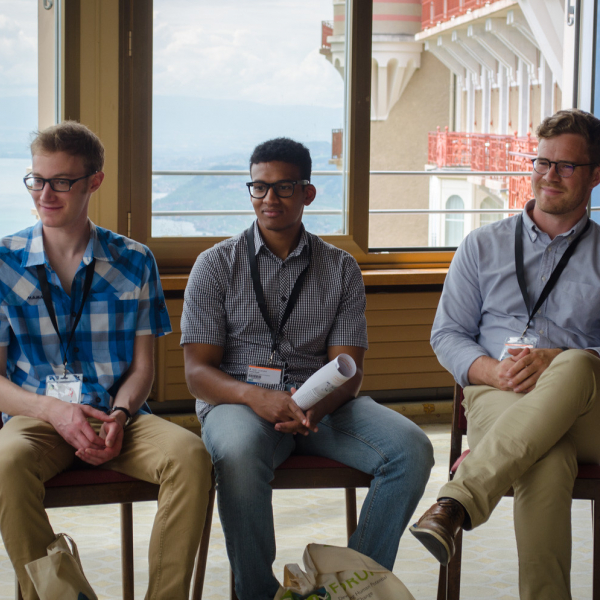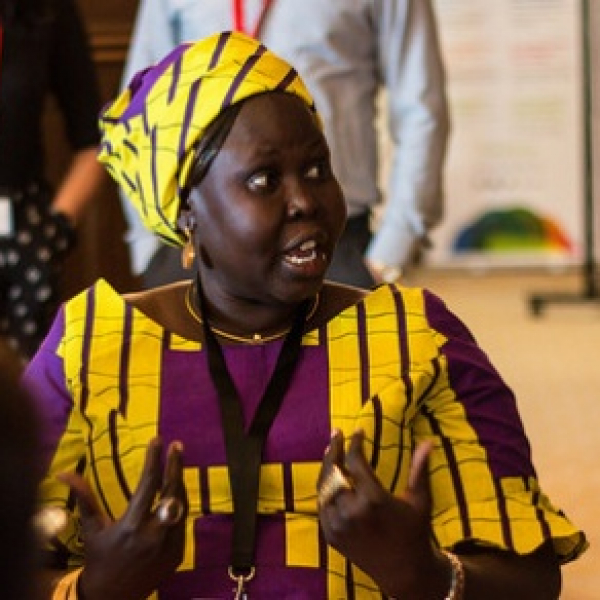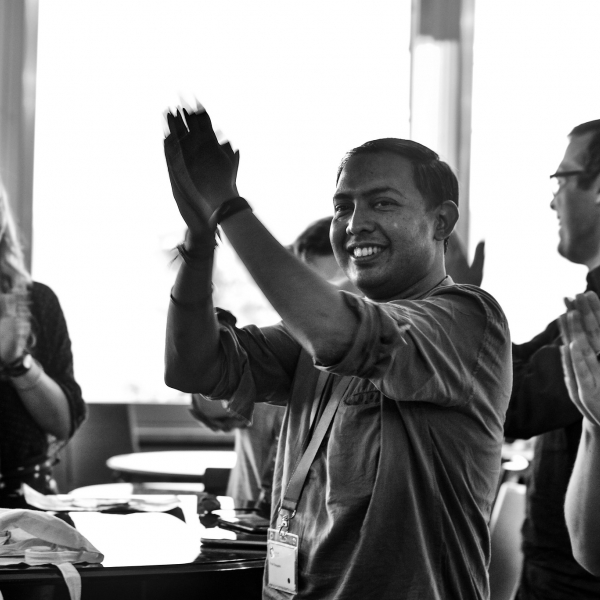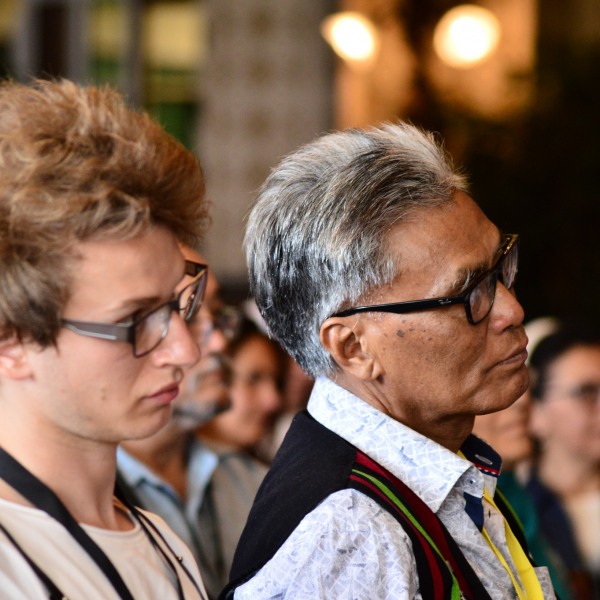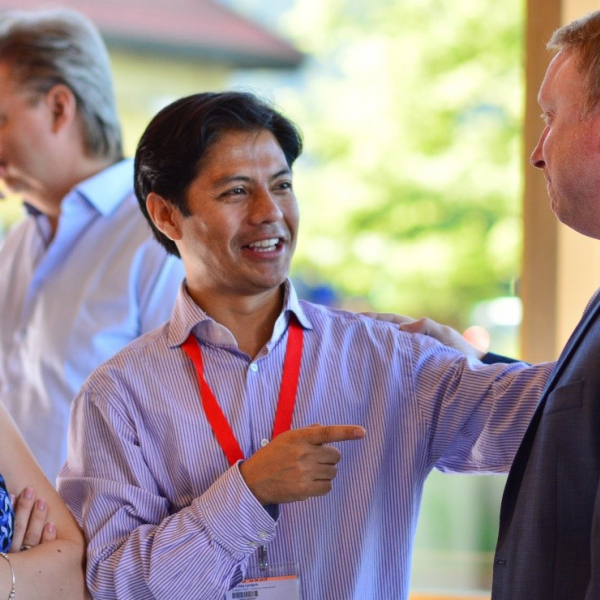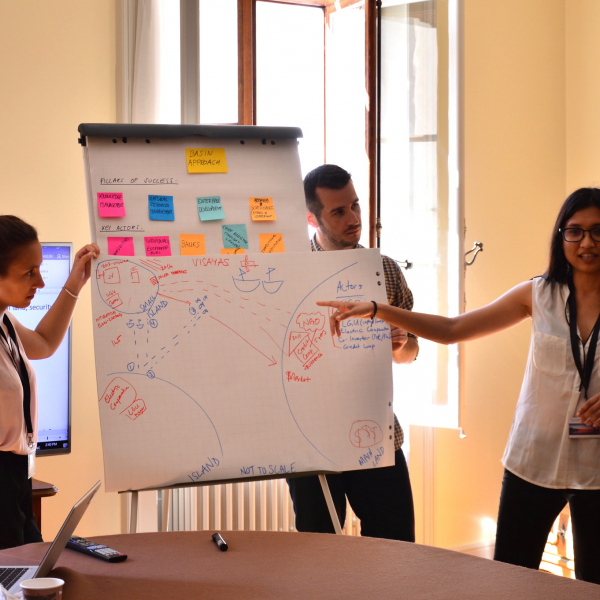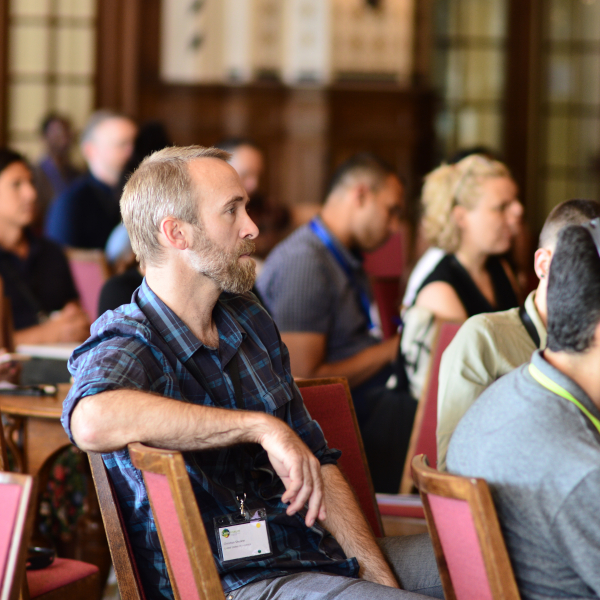Caux Dialogue on Land and Security 2018: Day by Day
CDLS 2018
20/08/2018
This report captures the four-day programme of presentations, panel discussions and interactive dialogues at CDLS 2018 – Landscapes of Peace: land restoration for conflict resolution. The event took place from17-21 July at the Caux Palace Conference and Seminar Centre, Switzerland. Over 120 participants came together to address the role of land degradation in conflict and how peace can be restored. The event highlighted the environmental and security challenges which will shape the world over the next 20 years. This year’s special focus included financial mechanisms for landscape restoration and the role of blockchain in land registry and supply chain monitoring.
Day 1: Land restoration for conflict resolution
Opening plenary speakers: Irina Fedorenko, Managing Director of CDLS; Barbara Hintermann, Secretary General, IofC Switzerland Foundation; Pradeep Monga, Deputy Executive Secretary, UNCCD; Dennis Kucinich, former US Congressman; Elizabeth Kucinich, Kucinich Institute for Human and Ecological Security.
Irina Fedorenko highlighted the need to explore the issues of land degradation and conflict as an interconnected problem, and to focus on solutions that use environmental restoration projects to build trust and peace. Creating and promoting high-tech jobs in farming and forestry for young people could raise education levels, build capacity and ultimately slow down migration.
Barbara Hintermann said that increasing pressure on natural resources, as demands for food and energy rise, was the greatest challenge facing humanity and a root cause of conflict. By 2050 about 9 billion people will need nutrition, but we are losing 12 million hectares of cultivated land every year. This trend must be reversed. Over 75% of the people affected by land degradation are poor.
Pradeep Monga provided an overview of social challenges to land restoration and stressed the importance of transboundary cooperation. ‘We all share a belief that if we give to the land, then the land will give to us: feed us, shelter us and provide wellbeing not only on the economic level, but also on the social and ecological level.’ Land degradation increases crisis and undermines humanity’s wellbeing. It affects over 3.2 billion people globally and also contributes to mass human migration. By 2050 food supply must increase by 70% and water supply by 50%. Smallholders have a key role in this. More on Pradeep Monga's participation at the Caux Dialogue here.
Elizabeth Kucinich called for a change of discourse from one of war and debate to one of peace and sharing of ideas. People have to understand complexity and diversity and think ecologically. Environmental change requires a holistic approach, which sees environmental challenges as opportunities. If we invest in land restoration and carbon sequestration we will create real wealth and abundance.
Dennis Kucinich addressed the dangers of polarization between communities, states, nations and religions. We need to align vision based on science and facts with inner vision, which enables us to imagine another reality and the future that we want. ‘There in nothing that limits any of us except our own limited thinking. We should challenge ourselves to be more than we are, to be better than we are and to achieve reconciliation with the natural world.’
Day 2: Ecosystem and land restoration
Speakers included: Natalie Topa, Regional Resilience and Livelihoods Coordinator for East Africa and Yemen for the Danish Refugee Council; Ruchi Jain, Founder of Taru Organics; Seth Itzkan, Founder of Soil4Climate; Dalmas Tiampati, Leader of the Maasai Centre for Regenerative Pastoralism; Sai Kishore Nellore, Executive Director of VEDA Climate Change Solutions, India; John D Liu, Founder of Ecosystem Restoration Camps; Irina Fedorenko, Co-founder of BioCarbon Engineering; Luca Montanarella from the European Commission; Patrick Worms, Senior Science Policy Adviser at the World Agroforestry Organisatio; Rolex Award laureate, Christine Keung; Alan Laubsh, from Lykke; Bremley WB Lyngdoh, founder of WorldView Impact.
The environment day of CDLS addressed the complex challenges facing the natural environment and explored the potential for largescale land restoration.
The speakers provided an overview of the root causes of land degradation around the world. Human activity has changed the surface of the planet in profound and far-reaching ways, through people’s lifestyles, diets and climate change. Land degradation affects countries of all income levels and at all levels of development. Success in addressing the sustainable development goals will require halting and reversing land degradation. National governments, local institutions and international organizations must work in close collaboration to achieve this.
People used to think that desertification and environmental degradation only affected certain countries and territories. It is now clear that environmental issues have no borders and that degradation in one place can impact conditions in another country. So far human impact on the natural world has been hugely negative, leading to ecosystem collapse. But is this inevitable? All natural and social systems are interconnected and if people look beyond separation and adopt system thinking we can reverse this negative trend.
The speakers presented many ways of addressing land degradation, including practical projects, technical solutions and new financial mechanisms. For example, ecosystem restoration camps plant new trees and sustain existing landscapes at low cost while improving rural livelihoods. Holistic projects promote integrated food security through reviving traditional foods, supporting ecosystem services, improving climate resilience and agriculture.
BioCarbon Engineering employs drones to restore ecosystems and plant trees in such countries as Myanmar, where tree planting has been financed through Lykke Wallet blockchain-powered tree coin and where Worldview International Foundation supports communities through creating sustainable jobs.
Day 3: Community building
Peter Rundell and Olivia Lazard of Initiatives for Land, Lives and Peace opened the Peace day by pointing out that lack of knowledge leads to disasters and that global inequality is growing at increasing speed. Ensuring that development benefits the poor, supports smallholders and provides jobs for young people is crucial for the success of international peace-building programmes.
According to the Founder of 4GGL, Jin In, every year more girls are killed, aborted and neglected than boys. There are 65 more million men and boys in the world than women and girls. Her passionate speech addressed the need for female empowerment, which increases the capacity of women and girls to make choices and transform them into actions and outcomes. Increasing the level of girls’ education and empowering women will affect all the Sustainable Development Goals, increase peace and benefit the environment.
Lisa Yasko is Executive Director of Witness, a performance devoted to the World War II Babi Yar massacres in Ukraine, in which tens of thousands of Jewish people were killed. Her presentation took the audience on a journey of exploring the tragedy and the healing process which is now taking place in Ukraine.
Yevgeniia Kuleba presented Garden-City NGO, a project which she conceived during Ukraine’s Maidan revolution in 2014 to enable communities to restore their cities and public places.
Pinaki Dasgupta, Country Director of Green Faith, presented faith-based initiatives to address climate change coming from Islam, Hinduism, Sikhism, Buddhism and Christianity. He described faith as a universal tool that allows people to connect, and which can enable environmental and social healing.
Sana Syed had been part of the Emerging Leaders Programme at CDLS 2017. She spoke about the project she has launched to train young Muslims in Chicago to become builders.
Ekaterina Zatuliveter, founder of Altourism which enlists tourists to help restore villages in Russia, spoke about teaching young people to revive their traditions and to create active rural communities.
The concluding panel featured a speech by Denise Lievesley, Principal of Green Templeton College, Oxford, about the future of education and the importance of supporting young people who can invent the future world.
Alan Channer presented Kenyan Dialogue on Land and Security and discussed the challenges that face peace-builders in addressing conflict between groups and within groups.
Marc Ian Barasch, Co-founder of ReGen18, presented his book, The compassionate life. He spoke of how drought and desertification had forced herdsmen in Nigeria’s north to move farther south to graze their cattle, creating conflict with farmers who struggled to protect their crops.
Day 4: Sustainable finance and new restoration economy
The finance day was chaired by Rishabh Khanna, from IofC Sweden, a leader of the Invest in Peace project, and Elizabeth Kucinich from the Kucinich Institute for Human and Ecological Security. The speakers discussed innovative ways to finance landscape restoration and focused on new economic models, sustainable finance, regenerative economy and blockchain technology.
The panelists included such experts in regenerative economy and blockchain as Ash Domah from Tradom and Nhat Vuong from Water Inception, Christopher Lindstrom Co-founder of Catalyst Bioenergy Group, John Roulac from Nutiva, Tom Duncan of Regen Investment, Christian Shearer from Regen Network, Carl Pendragon of Skymining, Alan Laubsch from Lykke, David Sab of Symbol Network, John D Liu from Ecosystem Restoration Camp and Jamie Walton from Welsh Circular Economy.
The presentations emphasized the need for the monetary system to support landscape restoration. Good governance, stability and liquidity are all essential. Land regeneration requires the ability to pay local people to do restoration projects; investment for initial financing; and support from local government and financial institutions. Blockchain technology is one means of increasing trust in the economic system.
The session focused on shifting the profit system which incentivizes land degradation to one which incentivizes land restoration, by creating returns on investment in land restoration and coming up with models that reassure investors. John Roulac pointed out the connection between the health of the soil and the health of people. The cost of not doing anything is so much higher than the cost of restoring degraded land, which will not only generate return on investment, but also help to reverse climate change, provide income to local people, reduce the number of climate refugees and contribute to peace-building.
John D Lui closed the day by listing four returns provided by landscape restoration: inspiration, social capital, natural capital and financial capital.

